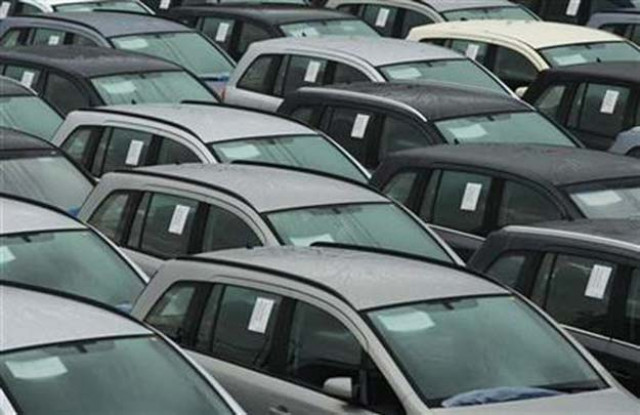Ride-hailing service for EV transition
Eyes sustainable transport in line with govt's carbon emissions vision

Pakistan's transportation sector is steadily shifting gears from traditional fuel-powered engines to electric vehicles (EVs), driven by a mix of local innovation, international partnerships, and a growing emphasis on sustainability.
Leading this charge is global mobility platform inDrive, which has launched multiple initiatives to accelerate EV adoption, targeting cost savings for drivers, reducing carbon emissions, and aligning with the government's vision of 30% EV penetration by 2030.
"The EV market in Pakistan is poised for growth," said Aman Alekseev, Impact Projects Manager at inDrive, in an interview with Express Tribune. "New local manufacturers are emerging, and Chinese companies are entering the market. We are building collaborations to make this transition inclusive and scalable," he added.
One of its flagship projects involves partnering with local startups to offer drivers an affordable pathway to EVs. Through a retrofitting model, petrol motorcycles are converted into electric ones at a fraction of the cost of buying new ones. Equipped with swappable batteries, these bikes are supported by 21 swap stations in Islamabad alone.
Over six months, 60 converted motorcycles have collectively travelled over 400,000 kilometres, saving drivers approximately Rs1.4 million in fuel and maintenance costs. On average, riders save 40% monthly compared to petrol bikes.
To further ease the financial burden, the company with its partners are piloting a 'Buy Now, Pay Later' (BNPL) scheme, allowing drivers to purchase new electric bikes with minimal upfront costs, Alekseev said.
The inDrive is also targeting four-wheeled EVs through other partnerships, which plans to deploy 50 electric cars each in Islamabad, Lahore, and Karachi for ride-hailing services. "Initiatives like these build trust and awareness," said Alekseev. "They show EVs aren't just a concept, they're a reality benefiting everyday people."
The company is the first in Pakistan to integrate AI into ride-hailing operations, leveraging machine learning for smarter dispatching, fraud detection, and better customer experience," Country Head in Pakistan Muhammad Awais Saeed said while talking to a group of journalists.
It is currently engaged in discussions with stakeholders to introduce electric vehicles and sustainable transport alternatives," he said adding that projects in development include bike swapping stations, retrofitting existing bikes, and potential collaboration with local automaker Honri on their EV model.
He also drew attention towards a few bureaucratic speed bumps the company is grappling with in Pakistan.























COMMENTS
Comments are moderated and generally will be posted if they are on-topic and not abusive.
For more information, please see our Comments FAQ